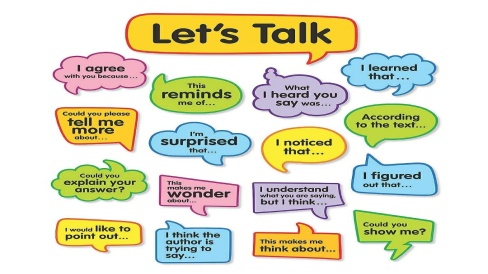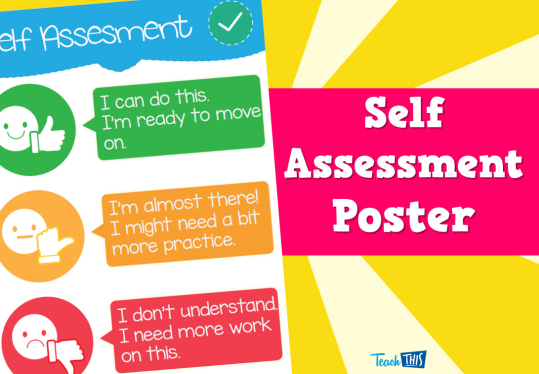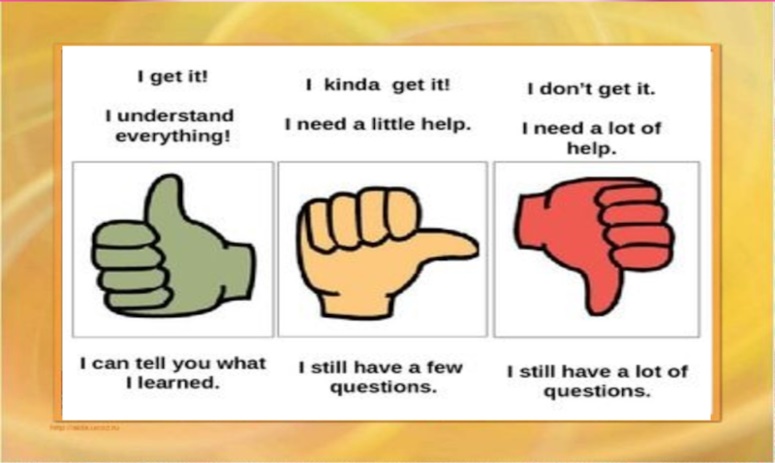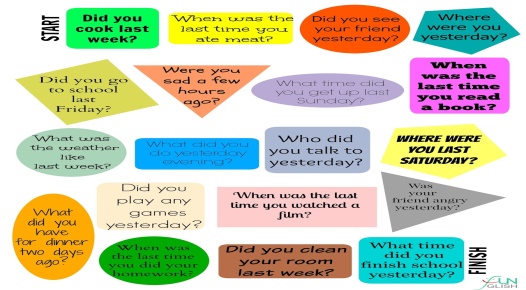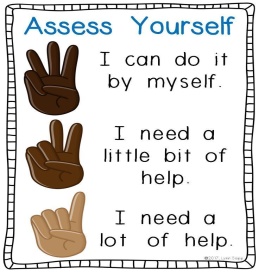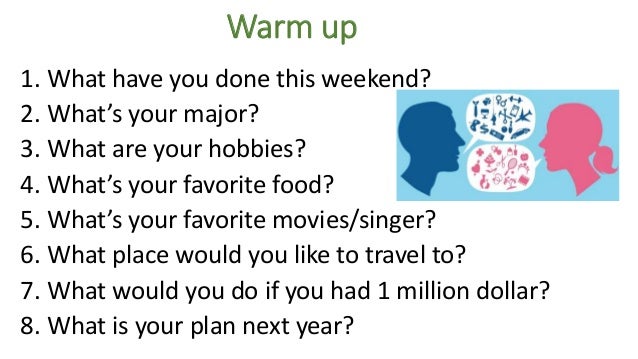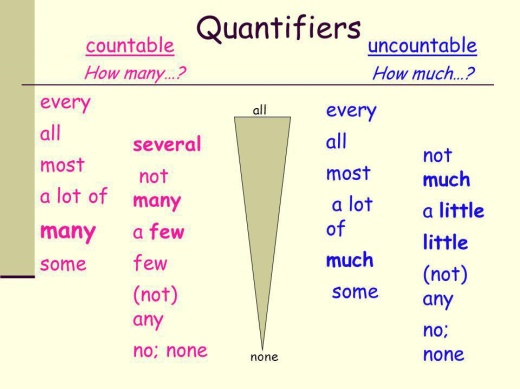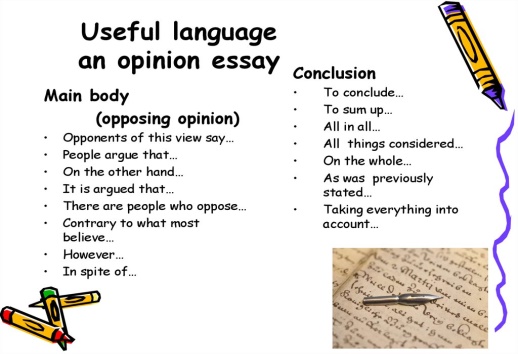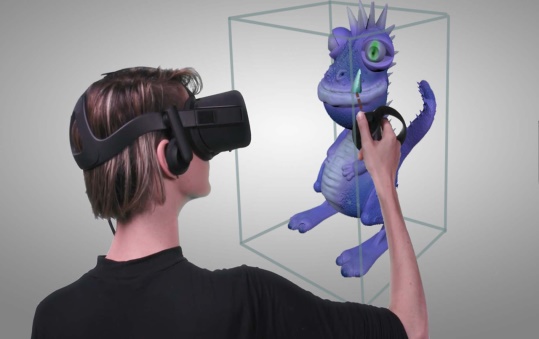Назар аударыңыз. Бұл материалды сайт қолданушысы жариялаған. Егер материал сіздің авторлық құқығыңызды бұзса, осында жазыңыз. Біз ең жылдам уақытта материалды сайттан өшіреміз
Жақын арада сайт әкімшілігі сізбен хабарласады

Бонусты жинап картаңызға (kaspi Gold, Halyk bank) шығарып аласыз

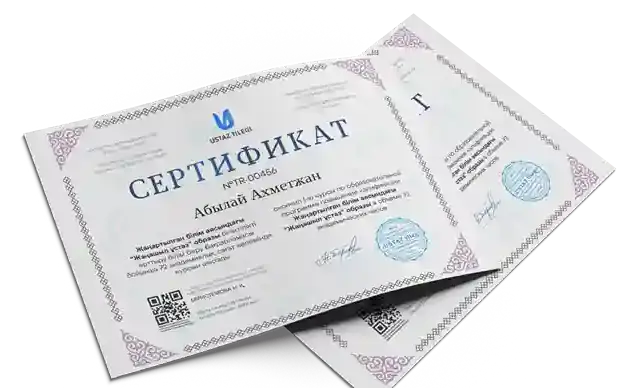
Actio 2 - тоқсан ҚМЖ
Дипломдар мен сертификаттарды алып үлгеріңіз!


Материалдың толық нұсқасын
жүктеп алып көруге болады
Short term plan: term 2
|
Unit: 3 Virtual reality |
Lesson 25 |
||
|
Teacher name: |
|
||
|
Date: |
|
||
|
Grade: 10 |
Number present: |
absent: |
|
|
Lesson title |
Virtual reality; Application of virtual reality |
||
|
Learning objectives |
10.1.5.1 - use feedback to set personal learning objectives; 10.2.1.1 - understand the main points in unsupported extended talk on a wide range of general and curricular topics, including talk on a limited range of unfamiliar topics; |
||
|
Lesson objectives |
Learners will be able to: - introduce the topic of virtual reality - practise vocabulary relating to applications of virtual reality |
||
|
Value links |
Family – Family values are moral and ethical principles of typical family life, including sacrificing for loved ones, putting your loved ones first, and keeping your loved ones at the centre of your thoughts and actions. |
||
|
Plan |
|||
|
Stages / Time |
Teachers actions |
Students actions |
Assessment criteria |
Resources |
|
Beginning of the lesson Warming-up 3 min. Pre-learning «Brainstorming» method 7 min. |
Organization moment : 1.Greeting. Ask about the weather. The teacher sets the lesson objectives, letting students know what to anticipate from the lesson. Warm-Up
Students talk about different things. Lead – In
What do you imagine about VR? |
The aim: To develop pupils speaking skills and create friendly atmosphere Efficiency: By wishing each other they feel better and feel the support of others Students of the class are listed. Students' attention is drawn to the lesson. Students say different words from the picture •Learners remember previous lesson vocabulary •Learners answer the questions |
The teacher to assess learners for their ability. “Good job! Well done!” Formative Assessment
Good job! Descriptor: - remembers the lesson passed Point 1 Assessment criteria make basic statements related to personal information, people and objects |
Pictures worksheet Picture |
|
Middle of the lesson Presentation part. 30 min |
Ex:1 P:35 • Read the definition aloud and explain/elicit the meanings of any unknown words. Then ask what Ss know about VR and what we use it for. Ask Ss to discuss in pairs and then ask some Ss to share their answers with the class. Ex: 2 P: 35 • Ask Ss to work in pairs or small groups and match the pictures to the applications. Elicit answers from around the class. Conclusion during the lesson some tasks differentiated by outcomes of the students and by their abilities. |
• Learners read the following definition. Answer the question. ANSWERS VR uses computer technology to create realistic images and sounds that allows someone through a headset to feel like they are in a virtual or imaginary environment. We use VR for entertainment, healthcare, art and education purposes. • Learners match the applications of VR to the pictures. ANSWERS 1 B 2 F 3 E 4 A 5 C 6 D |
Descriptor: - read the following definition -answer the question Total: 3 point
Self assessment Differentiation: «Verbal support» method is used to help Ss use new words in the sentences. Descriptor: - match the applications of VR to the pictures. Total: 3 point -Make CCQ questions Yes / No |
Card Worksheet Students book |
|
End of the lesson 5 min |
FEEDBACK Learners provide feedback on what they have learned at the lesson. Ex: P: Home task: Write the days |
|
Poster Success
|
|
Short term plan: term 2
|
Unit 3 Virtual reality |
Lesson 26 |
||
|
Teacher name: |
|
||
|
Date: |
|
||
|
Grade: 10 |
Number present: |
absent: |
|
|
Lesson title |
Products of the future |
||
|
Learning objectives |
10.2.8.1 - recognize inconsistencies in argument in extended talk on a range of general and curricular subjects; 10.3.5.1 - interact with peers to make hypotheses about a wide range of general and curricular topics; |
||
|
Lesson objectives |
Learners will be able to: - present new vocabulary - listen and read for gist |
||
|
Value links |
Loyalty – Loyalty might be a core personal value to you if you highly prize friends that are reliable and trustworthy. You might put your friends or chosen family first, always being there for them when they need you. |
||
|
Plan |
|||
|
Stages / Time |
Teachers actions |
Students actions |
Assessment criteria |
Resources |
|
Beginning of the lesson Warming-up 3 min Pre-learning «Brainstorming» method 7 min. |
Organization moment : 1.Greeting. Ask about the weather. The teacher sets the lesson objectives, letting students know what to anticipate from the lesson. Warm- Up
Ask a few pupils to stand up and stand in a row. Ask the rest of the class questions to revise the ordinals. Lead – In
|
The aim: To develop pupils speaking skills and create friendly atmosphere Efficiency: By wishing each other they feel better and feel the support of others Students of the class are listed. Students' attention is drawn to the lesson. Determines the topic and purpose of the lesson •Learners remember previous lesson vocabulary Students say different words from the picture Answer the question. |
The teacher to assess learners for their ability. “Good job! Well done!” Formative Assessment
Good job! Descriptor: - know daily routines vocabulary - know prepositions of place Point 1 Assessment criteria - Learners have met the learning objectives if they can talk about |
Pictures worksheet Student’s book |
|
Middle of the lesson Presentation part. 30 min |
Ex:1 P36 • Play the recording with pauses for Ss to repeat chorally and/or individually. • Read the example sentence aloud and elicit similar sentences from Ss around the class. Ex: 2 P: 36 • Direct Ss' attention to the title, introduction and pictures and elicit Ss' guesses as to what they think the text is about. • Play the recording. Ss listen and follow the text in their books to find out. Ex: 3 P: 36 • Ask Ss to read questions 1-7 and underline the key words. Give Ss time to read the text and write the letter A, B or C next to each question. Remind Ss that they should look for words or phrases in texts A-C that say the same as the words and phrases they underlined in the questions. Allow Ss time to complete the task. Check Ss' answers and ask them to justify their answers. |
• Pupils listen and say. Make sentences ANSWERS 2 The key is made of metal. 3 The bottle is made of glass. 4 The chair is made of wood. 5 The box is made of plastic. • Pupils read the title, the introduction, and loom at the pictures. ANSWERS I expect the text to be about technology of the future and how it will make life easier for people. • Pupils read and for questions choose from the text ANSWERS 1 robust material 2 recycling 3 first-aid use 4 treasure-hunting 5 machine no putting together 6 shopping 7 limitless potential |
Descriptor: - listen and say. Make sentences Total: 2 point Descriptor: - read the title, the introduction, and loom at the pictures. Total: 1 point Descriptor: - read and for questions choose from the text Total: 2 point Self assessment
-Make CCQ questions Yes / No Total: 10 point |
Card Worksheet Students book |
|
End of the lesson 5 min |
FEEDBACK Learners provide feedback on what they have learned at the lesson. Ex: P: Home task: Write the days |
|
Poster Success
|
|
Short term plan: term 2
|
Unit 3 Virtual reality |
Lesson 27 |
||
|
Teacher name: |
|
||
|
Date: |
|
||
|
Grade: 10 |
Number present: |
absent: |
|
|
Lesson title |
Grammar reference: Future tenses |
||
|
Learning objectives |
10.3.7.1 - use appropriate subject-specific vocabulary and syntax to talk about a range of general and curricular topics; 10.4.1.1 - understand main points in extended texts on a wide range of familiar and some unfamiliar general and curricular topics; |
||
|
Lesson objectives |
Learners will be able to: - consolidate new vocabulary - revise future tenses - practise future tenses using personal examples |
||
|
Value links |
Fairness – If you value fairness, you might be highly sensitive to situations at school or in the workplace where a teacher or a peer has exhibited favoritism or allowed someone to get away with living by a different set of rules to everyone else. |
||
|
Plan |
|||
|
Stages / Time |
Teachers actions |
Students actions |
Assessment criteria |
Resources |
|
Beginning of the lesson Warming-up
3 min Pre-learning «Brainstorming» method 7 min. |
Organization moment : 1.Greeting. Ask about the weather. The teacher sets the lesson objectives, letting students know what to anticipate from the lesson. Warm- Up
revise the vocabulary from the previous Lead – In
Do you think textile products are developed in Kazakhstan? If it not developed how to develop our textile? |
. The aim: To develop pupils speaking skills and create friendly atmosphere Efficiency: By wishing each other they feel better and feel the support of others Students of the class are listed. Students' attention is drawn to the lesson. • Learners remember previous lesson vocabulary Determines the topic and purpose of the lesson Students say different words from the picture and answer the question |
The teacher to assess learners for their ability. “Good job! Well done!” Formative Assessment
Good job! Descriptor: - can tell the time Point 1 Assessment criteria - Learners have met the learning objectives if they can talk about persons character |
Pictures worksheet Picture |
|
Middle of the lesson Presentation part. 30 min |
Ex: 4 P: 37 • Explain the task and give Ss time to complete it. Check Ss' answers. Ex:5 P: 37 •Explain the task. Go through the descriptions A-G and elicit which tense we use in each case. Refer Ss to the Grammar Reference section for more details. Give Ss time to complete the task and then check Ss' answers. Ex:6 P: 37 • Explain the task. Give Ss time to complete it and then check Ss' answers. • Elicit the reasons for each use. Ex: 7 P: 37 • Elicit a variety of answers from Ss around the class. Conclusion during the lesson some tasks differentiated by outcomes of the students and by their abilities. |
•Pupils fill the gaps. ANSWERS 1 assembly 2 turn into 3 endless 4 graphics 5 dissolve •Pupils match the examples to the description. Find more examples in the text 1 E 2 D 3 A 4 B 5 C 6 F 7 G •Pupils choose the correct form verb ANSWERS 1 will answer - an on-the-spot decision 2 will be - a prediction based on what we believe/ imagine 3 am going to buy - a plan or intention 4. Are you working - a fixed arrangement 5 will be travelling - an action in progress at a particular time in the future 6 won't a promise 7 is going to play - a prediction based on what we •Pupils say two thing you will be doing this time. ANSWERS I will be studying at school this time next week. I will be having an English lesson this time next week. I'm playing football tomorrow evening. I'm visiting my grandparents tomorrow evening. In the summer, I will swim in the sea. In the summer, I will go on holiday. I'm going to clean my room this weekend. I'm going to watch TV this weekend. |
Descriptor: - fill the gaps Total: 1 point
Descriptor: - match the examples to the description. Find more examples in the text Total: 1 point
Descriptor: - choose the correct form verb Total: 1 point Descriptor: - say two thing you will be doing this time Total: 1 point
-Make CCQ questions Yes / No pupils are evaluated by collecting pencils |
Card Worksheet |
|
End of the lesson 5 min |
FEEDBACK Learners provide feedback on what they have learned at the lesson. Ex: Home task: |
|
Poster Success
|
|
Short term plan: term 2
|
Unit 3 Virtual reality |
Lesson 28 |
||
|
Teacher name: |
|
||
|
Date: |
|
||
|
Grade: 10 |
Number present: |
absent: |
|
|
Lesson title |
Apps on the go |
||
|
Learning objectives |
10.4.2.1 - understand specific information and detail in extended texts on a range of familiar general and curricular topics, and some unfamiliar topics; 10.5.4.1 - use style and register to achieve appropriate degree of formality in a growing variety of written genres on a range of general and curricular topics; |
||
|
Lesson objectives |
Learners will be able to: - introduce the topic and present new vocabulary - predict the content of the text; to listen and read for gist - read for specific information |
||
|
Value links |
Perseverance – People who value perseverance will work through adversity and be determined to get a result. This is a great treat for employees and entrepreneurs alike |
||
|
Plan |
|||
|
Stages / Time |
Teachers actions |
Students actions |
Assessment criteria |
Resources |
|
Beginning of the lesson Warming-up
3 min Pre-learning «Brainstorming» method 7 min. |
Organization moment : 1.Greeting. Ask about the weather. The teacher sets the lesson objectives, letting students know what to anticipate from the lesson.
revise the vocabulary from the previous Lead – In
|
. The aim: To develop pupils speaking skills and create friendly atmosphere Efficiency: By wishing each other they feel better and feel the support of others Students of the class are listed. Students' attention is drawn to the lesson. • Learners remember previous lesson vocabulary Determines the topic and purpose of the lesson Students say different words from the picture |
The teacher to assess learners for their ability. “Good job! Well done!” Formative Assessment
Good job! Descriptor: - can tell the time Point 1 Assessment criteria - Learners have met the learning objectives if they can talk about mobile apps |
Pictures worksheet Picture |
|
Middle of the lesson Presentation part. 30 min |
Ex: 1 P: 38 • Elicit where app comes from (application). Then elicit what Ss use mobile apps for and ask them to tell their partner and make sentences using the prompts and following the example. Ask various Ss to tell the class. Ex:2 P: 38 • Read out the title and ask Ss to read the first paragraph of the text and guess what the text is about. • Play the recording. Ss listen and read and find Ex:3 P: 38 • Explain the task. Give Ss time to read the questions and the answer choices and then read the text again and choose the correct answers. • Check Ss' answers. Ex: 4 P: 38 • Give Ss time to complete the task. Tell them to refer back to the text if necessary. Check Ss' answers. Conclusion during the lesson some tasks differentiated by outcomes of the students and by their abilities. |
•Pupils use the phrases below to tell your partner. Complete the sentences ANSWERS I use mobile apps to chat online, upload pictures and play games. •Pupils read the title and the first paragraph of the article ANSWERS The text is about new types of apps that are available •Pupils read the text again and for question choose the correct answer. ANSWERS 2 B 3 D 4 B 5 D 1 A •Pupils fill the gaps ANSWERS 1 living 2 live 3 breaking 4 independent 5 basic 6 real 7 grab 8 tap 9 keep 10 go |
Descriptor: - use the phrases - complete the sentences Total: 1 point Descriptor: - use mobile apps to chat online Total: 1 point
Descriptor: - read the title and the first paragraph of the article Total: 1 point Descriptor: - fill the gaps Total: 1 point
-Make CCQ questions Yes / No pupils are evaluated by collecting pencils |
Card Worksheet |
|
End of the lesson 5 min |
FEEDBACK Learners provide feedback on what they have learned at the lesson. Ex: Home task: |
|
Poster Success
|
|
Short term plan: term 2
|
Unit 3 Virtual reality |
Lesson 29 |
||
|
Teacher name: |
|
||
|
Date: |
|
||
|
Grade: 10 |
Number present: |
absent: |
|
|
Lesson title |
Grammar: Determines and Pre – determiners |
||
|
Learning objectives |
10.2.8.1 - recognize inconsistencies in argument in extended talk on a range of general and curricular subjects; 10.3.2.1 ask complex questions to get information about a limited range of general topics and some curricular topics; 10.4.1.1 - understand main points in extended texts on a wide range of familiar and some unfamiliar general and curricular topics |
||
|
Lesson objectives |
Learners will be able to: - present/practise determiners & pre-determiners - listen for specific information - express opinion - agree/disagree |
||
|
Value links |
Fairness – If you value fairness, you might be highly sensitive to situations at school or in the workplace where a teacher or a peer has exhibited favoritism or allowed someone to get away with living by a different set of rules to everyone else. |
||
|
Plan |
|||
|
Stages / Time |
Teachers actions |
Students actions |
Assessment criteria |
Resources |
|
Beginning of the lesson Warming-up
3 min Pre-learning «Brainstorming» method 7 min. |
Organization moment : 1.Greeting. Ask about the weather. The teacher sets the lesson objectives, letting students know what to anticipate from the lesson.
revise the vocabulary from the previous Lead – In
|
. The aim: To develop pupils speaking skills and create friendly atmosphere Efficiency: By wishing each other they feel better and feel the support of others Students of the class are listed. Students' attention is drawn to the lesson. • Learners remember previous lesson vocabulary Determines the topic and purpose of the lesson Students say different words from the picture |
The teacher to assess learners for their ability. “Good job! Well done!” Formative Assessment
Good job! Descriptor: - can tell the time Point 1 Assessment criteria - Learners have met the learning objectives if they can talk about mobile apps |
Pictures worksheet Picture |
|
Middle of the lesson Presentation part. 30 min |
Ex: 6 P: 39 • Ask Ss to read the theory box on p. 38 and explain any points Ss are unsure of. Refer Ss to the Grammar Reference section for more details. Then give Ss time to read sentences 1-8 and choose the correct words in bold. Check Ssanswers. Ex:7 P: 39 • Explain task and ask Ss to read statements 1-6 the recording listen and complete task Check answers Ex:8 P: 39 • Read out the rubric and explain the task. Ss work in pairs and discuss the questions in the rubric using the expressions in the table and following the example. Monitor the activity around the class and then ask some pairs to tell the class. Ex: 9 P: 39 • Explain the task and give Ss time to think of their own mobile app and write a paragraph about it. Ask various Ss around the class to read their paragraphs aloud. Conclusion during the lesson some tasks differentiated by outcomes of the students and by their abilities. |
•Pupils choose the correct word ANSWERS 1 an 2 those 3 these 4 that 5 Both 6 such 7 Each 8 twice •Pupils listen to two classmates talking about smartphone apps. Mark the statements true or false ANSWERS 1 T 2 T 3 F 4 T 5 F 6 T •Pupils discuss with your partner. Use your ideas from ex 7 ANSWERS A: If you ask me, mobile apps are useful. B: I don't agree. I think they're a waste of time •Pupils create you mobile apps. ANSWERS Students own answer. |
Descriptor: - choose the correct word Total: 1 point Descriptor: - listen to two classmates - mark the statements true or false Total: 1 point
Descriptor: - discuss with your partner. - use your ideas Total: 1 point
-Make CCQ questions Yes / No pupils are evaluated by collecting pencils |
Card Worksheet |
|
End of the lesson 5 min |
FEEDBACK Learners provide feedback on what they have learned at the lesson. Ex: Home task: |
|
Poster Success
|
|
Short term plan: term 2
|
Unit 3 Virtual reality |
Lesson 30 |
||
|
Teacher name: |
|
||
|
Date: |
|
||
|
Grade: 10 |
Number present: |
absent: |
|
|
Lesson title |
Games: Computer accessories and gadgets |
||
|
Learning objectives |
10.3.2.1 ask complex questions to get information about a limited range of general topics and some curricular topics; 10.4.1.1 - understand main points in extended texts on a wide range of familiar and some unfamiliar general and curricular topics; 10.5.4.1 - use style and register to achieve appropriate degree of formality in a growing variety of written genres on a range of general and curricular topics; |
||
|
Lesson objectives |
Learners will be able to: - present new vocabulary - listen and read for specific information - read for cohesion & coherence |
||
|
Value links |
Self-Discipline – If you value self-discipline, you might be a person who wakes up early, exercises daily, and doesn’t get distracted by vices. |
||
|
Plan |
|||
|
Stages / Time |
Teachers actions |
Students actions |
Assessment criteria |
Resources |
|
Beginning of the lesson Warming-up
3 min Pre-learning «Brainstorming» method 7 min. |
Organization moment : 1.Greeting. Ask about the weather. The teacher sets the lesson objectives, letting students know what to anticipate from the lesson.
revise the vocabulary from the previous Lead – In
|
. The aim: To develop pupils speaking skills and create friendly atmosphere Efficiency: By wishing each other they feel better and feel the support of others Students of the class are listed. Students' attention is drawn to the lesson. • Learners remember previous lesson vocabulary Determines the topic and purpose of the lesson Students say different words from the picture |
The teacher to assess learners for their ability. “Good job! Well done!” Formative Assessment
Good job! Descriptor: - can tell the time Point 1 Assessment criteria - Learners have met the learning objectives if they can talk about сomputer accessories and gadgets |
Pictures worksheet Picture |
|
Middle of the lesson Presentation part. 30 min |
Ex: 1 P: 40 • Play the recording with pauses for Ss to repeat chorally and/or individually. Then give Ss time to match the words to the pictures. Check Ss' answers. Ex:2 P: 40 • Ask Ss to read the definition and elicit thei answers to the question. Ask Ss to briefly look through the article and find out. Ex:3 P: 40 • Give Ss time to read the text carefully and then match the missing sentences to the gaps. Tell Ss to look at the words before and after each gap to help them choose their answers. Play the recording. Ss listen and read the text and check their answers Ex: 4 P: 41 • Give Ss time to answer the questions referring to the text as necessary. Check Ss' answers. Conclusion during the lesson some tasks differentiated by outcomes of the students and by their abilities. |
•Pupils listen and repeat words in the list. Then match the words to the pictures. ANSWERS 1 speakers 2 headphones 3 tablet 4 games console 5 smartphone 6 keyboard 7 monitor 8 mouse •Pupils read the definition. Identify between 2D and 3D games ANSWERS 3D games are more realistic than 2D games and have immersive gameplay. Both types of games have storylines, but 2D games are simpler and have pixelated characters. •Pupils read again and choose from the sentences. ANSWERS 1 D 2 F 3 B 4 E 5 A •Pupils answer the questions ANSWERS 1 The advantages of 2D games are that they ar cheap to produce, don't require much compute memory and are suitable for hand-held devices The disadvantages are that they are simplistic with pixelated characters and only involve one screen. 2 2D games are popular again because they can be played on smartphones as a mobile game. Moder versions of 2D consoles are now collector's item and new games are still being produced |
Descriptor: - listen and repeat - match the words to the pictures Total: 1 point Descriptor: - read the definition - Identify between 2D and 3D games Total: 1 point
Descriptor: - read again and choose from the sentences. Total: 1 point
-Make CCQ questions Yes / No pupils are evaluated by collecting pencils |
Card Worksheet |
|
End of the lesson 5 min |
FEEDBACK Learners provide feedback on what they have learned at the lesson. Ex: Home task: |
|
Poster Success
|
|
Short term plan: term 2
|
Unit 3 Virtual reality |
Lesson 31 |
||
|
Teacher name: |
|
||
|
Date: |
|
||
|
Grade: 10 |
Number present: |
absent: |
|
|
Lesson title |
Grammar: Quantifiers |
||
|
Learning objectives |
10.1.7.1 - develop and sustain a consistent argument when speaking or writing; 10.3.3.1 - explain and justify own and others’ point of view on a wide range of general and curricular topics; 10.5.7.1 - use independently appropriate layout at text level on a range of general and curricular topics; |
||
|
Lesson objectives |
Learners will be able to: - consolidate new vocabulary from a text - consolidate new vocabulary - present/practise quantifiers |
||
|
Value links |
Generosity – This may be a core value of yours if you cherish people who will give their time and resources to people in need. You may consider yourself to be a generous person if you find joy and meaning in giving to others. |
||
|
Plan |
|||
|
Stages / Time |
Teachers actions |
Students actions |
Assessment criteria |
Resources |
|
Beginning of the lesson Warming-up
3 min Pre-learning «Brainstorming» method 7 min. |
Organization moment : 1.Greeting. Ask about the weather. The teacher sets the lesson objectives, letting students know what to anticipate from the lesson.
revise the vocabulary from the previous Lead – In
|
. The aim: To develop pupils speaking skills and create friendly atmosphere Efficiency: By wishing each other they feel better and feel the support of others Students of the class are listed. Students' attention is drawn to the lesson. • Learners remember previous lesson vocabulary Determines the topic and purpose of the lesson Students say different words from the picture |
The teacher to assess learners for their ability. “Good job! Well done!” Formative Assessment
Good job! Descriptor: - can tell the time Point 1 Assessment criteria - Learners have met the learning objectives if they can talk about |
Pictures worksheet Picture |
|
Middle of the lesson Presentation part. 30 min |
Ex: 5 P: 41 • Explain the task and give Ss time to complete it referring to the text as necessary. Then ask Ss to make sentences based on the text. Ask Ss around the class to share their answers with the rest of the class. Ex:6 P: 41 • Refer Ss to the words in bold in the text and give them time to match them to their definitions in the list. Check Ss' answers Ex:7 P: 41 • Explain that we use some in affirmative sentences for plural items and we use any in negative plural sentences and interrogative plural sentences. Explain that we use much/(a) little with uncountable nouns and many/(a) few with countable nouns. * Explain that we use a lot of with countable / uncountable nouns. Refer Ss to the Grammar Reference section for more details. Explain the task and give Ss time to complete it. Check Ss' answers and then elicit sentences using the other words. Ex: 8 P: 41 • Explain the task and give Ss time to complete it. Refer Ss to the Grammar Reference section for help if necessary. Check Ss' answers. . Conclusion during the lesson some tasks differentiated by outcomes of the students and by their abilities. |
•Pupils fill the gaps. ANSWERS 1 game 2 hand-held 3 memory 4 downloadable 5 item 6 must-have 7 open 8 platform •Pupils match the words in bold in the text. ANSWERS commands = orders interact = have an effect on each other combined = joined defended = protected courageous = brave increasingly more and more require = need a must = essential •Pupils choose the correct word. Then make sentences using other words. ANSWERS 1 any 2 few 3 a lot of 4 much 5 many, any •Pupils read the sentences. Answer the question ANSWERS 1 Every 2 a number of 3 any 4 Much |
Descriptor: - fill the gaps. Total: 1 point Descriptor: - match the words in bold Total: 1 point
Descriptor: - choose the correct word - make sentences using other words Total: 1 point
Descriptor: - read the sentences. - answer the question Total: 1 point -Make CCQ questions Yes / No pupils are evaluated by collecting pencils |
Card Worksheet |
|
End of the lesson 5 min |
FEEDBACK Learners provide feedback on what they have learned at the lesson. Ex: Home task: |
|
Poster Success
|
|
Short term plan: term 2
|
Unit 3 Virtual reality |
Lesson 32 |
||
|
Teacher name: |
|
||
|
Date: |
|
||
|
Grade: 10 |
Number present: |
absent: |
|
|
Lesson title |
Writing: An opinion essay |
||
|
Learning objectives |
10.2.8.1 - recognize inconsistencies in argument in extended talk on a range of general and curricular subjects; 10.3.3.1 - explain and justify own and others’ point of view on a wide range of general and curricular topics; 10.4.5.1 deduce meaning from context in extended texts on a wide range of familiar general and curricular topics, and some unfamiliar topics; |
||
|
Lesson objectives |
Learners will be able to: - analyse a model for content and structure - write supporting sentences for given topic sentences |
||
|
Value links |
Generosity – This may be a core value of yours if you cherish people who will give their time and resources to people in need. You may consider yourself to be a generous person if you find joy and meaning in giving to others. |
||
|
Plan |
|||
|
Stages / Time |
Teachers actions |
Students actions |
Assessment criteria |
Resources |
|
Beginning of the lesson Warming-up
3 min Pre-learning «Brainstorming» method 7 min. |
Organization moment : 1.Greeting. Ask about the weather. The teacher sets the lesson objectives, letting students know what to anticipate from the lesson.
revise the vocabulary from the previous Lead – In
|
. The aim: To develop pupils speaking skills and create friendly atmosphere Efficiency: By wishing each other they feel better and feel the support of others Students of the class are listed. Students' attention is drawn to the lesson. • Learners remember previous lesson vocabulary Determines the topic and purpose of the lesson Students say different words from the picture |
The teacher to assess learners for their ability. “Good job! Well done!” Formative Assessment
Good job! Descriptor: - can tell the time Point 1 Assessment criteria - Learners have met the learning objectives if they can talk about |
Pictures worksheet Picture |
|
Middle of the lesson Presentation part. 30 min |
Ex: 1 P: 42 • Read the Writing Tip box aloud and introduce the type of writing, the content, layout and useful language. Ask Ss to read through the rubric and identify the key words and answer the questions. Check Ss' answers around the class Ex:2 P: 43 • Give Ss time to read the model and match the paragraphs to their content. Check Ssanswers. Ex:3 P: 43 • Ask Ss to read the model again and identif and categorise the linkers. Check Ssanswers on the board. Ex: 4 P: 43 • Go through the example. Elicit the connection between the topic sentence and the supporting sentences (they give reasons). Give Ss time to read the topic sentences and write supporting sentences for them. Ask Ss around the class to read out their supporting sentences. Conclusion during the lesson some tasks differentiated by outcomes of the students and by their abilities. |
•Pupils read the rubric. Underline the key words and answer the question. ANSWERS Key words: '3D games are the best option for the current generation of gamers', teacher, essay giving your opinion with reasons, 120-180 words 1 my teacher 2 my opinion with reasons 3 formal because an essay is a formal piece of writing 4 I think that there are some great non-3D games around, but for a rich, immersive experience with excellent graphics the best option for the current generation of gamers is 3D games •Pupils read the essay and match the paragraphs to the headings below ANSWERS A 5 B 3 C 1 D 2 E 4 •Pupils read the essay again ANSWERS introduce an opinion - I believe list points - To begin with add more points - Secondly show results - As a result/Therefore Introduce an opposite viewpoint - On the other hand Introduce examples - For example conclude - In conclusion •Pupils read the topic sentences. ANSWERS Students own answer |
Descriptor: - read the rubric - underline the key words Total: 1 point Descriptor: - read the essay - match the paragraphs to the headings Total: 1 point
Descriptor: - read the essay again Total: 1 point
Descriptor: - read the topic sentences. Total: 1 point -Make CCQ questions Yes / No pupils are evaluated by collecting pencils |
Card Worksheet |
|
End of the lesson 5 min |
FEEDBACK Learners provide feedback on what they have learned at the lesson. Ex: Home task: |
|
Poster Success
|
|
Short term plan: term 2
|
Unit 3 Virtual reality |
Lesson 33 |
||
|
Teacher name: |
|
||
|
Date: |
|
||
|
Grade: 10 |
Number present: |
absent: |
|
|
Lesson title |
Culture corner |
||
|
Learning objectives |
10.4.3.1 - skim a range of lengthy texts with speed to identify content meriting closer reading on a range of general and curricular topics; 10.3.6.1 - navigate talk and modify language through paraphrase and correction in talk on a range of familiar general and curricular topics; 10.5.3.1 - write with grammatical accuracy on a range of familiar general and curricular topics; |
||
|
Lesson objectives |
Learners will be able to: - elicit different art forms - consolidate new collocations from the tex - consolidate information in a text and offer an opinion |
||
|
Value links |
Generosity – This may be a core value of yours if you cherish people who will give their time and resources to people in need. You may consider yourself to be a generous person if you find joy and meaning in giving to others. |
||
|
Plan |
|||
|
Stages / Time |
Teachers actions |
Students actions |
Assessment criteria |
Resources |
|
Beginning of the lesson Warming-up
3 min Pre-learning «Brainstorming» method 7 min. |
Organization moment : 1.Greeting. Ask about the weather. The teacher sets the lesson objectives, letting students know what to anticipate from the lesson.
revise the vocabulary from the previous Lead – In
|
. The aim: To develop pupils speaking skills and create friendly atmosphere Efficiency: By wishing each other they feel better and feel the support of others Students of the class are listed. Students' attention is drawn to the lesson. • Learners remember previous lesson vocabulary Determines the topic and purpose of the lesson Students say different words from the picture |
The teacher to assess learners for their ability. “Good job! Well done!” Formative Assessment
Good job! Descriptor: - can tell the time Point 1 Assessment criteria - Learners have met the learning objectives if they can talk about |
Pictures worksheet Picture |
|
Middle of the lesson Presentation part. 30 min |
Ex: 1 P: 44 • Ask Ss to work in pairs and come up with list of different art forms. Give the pairs three minutes. Ask pairs for suggestions around the class and write the full list on the board. Ex:2 P: 44 • Explain the task and ask Ss to read the text again and choose the word from the choice of four which best completes each gap to make the text coherent and correct both lexically and grammatically. Play the recording Ss listen and follow the text to check their answers Ex:3 P: 44 • Explain the task. Give Ss time to complete the task, referring back to the text if necessary. Check Ss' answers Ex: 4 P: 44 • Give Ss time to answer the questions in their own words. Ask various Ss around the class to share their answers with the rest of the class. Conclusion during the lesson some tasks differentiated by outcomes of the students and by their abilities. |
•Pupils in pairs make a list. Tell the class. ANSWERS "painting, graffiti, sculpture, music, dance, dram pottery, poetry, animation, photography, video. •Pupils read the text again and for question choose the correct word. ANSWERS 1 B 2 C 3 D 4 A 5 B 6 C 7 A 8 C 9 A •Pupils fill the gaps. ANSWERS 1 job 2 develop 3 promising 4 cave 5 virtual 6 come 8 unique •Pupils answer the question ANSWERS 1 Students use the VR studio to create their art piece, while planning and sketching at home |
Descriptor: - in pairs make a list. - tell the class. Total: 1 point Descriptor: - read the text - choose the correct word Total: 1 point
Descriptor: - fill the gaps Total: 1 point
Descriptor: - answer the question Total: 1 point -Make CCQ questions Yes / No pupils are evaluated by collecting pencils |
Card Worksheet |
|
End of the lesson 5 min |
FEEDBACK Learners provide feedback on what they have learned at the lesson. Ex: Home task: |
|
Poster Success
|
|


